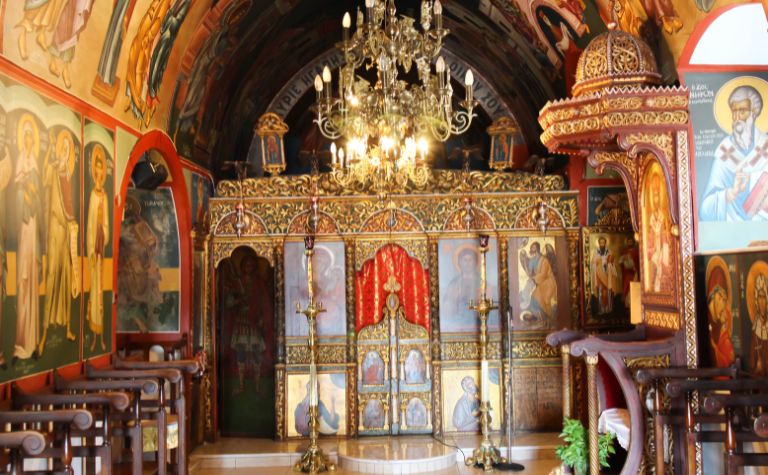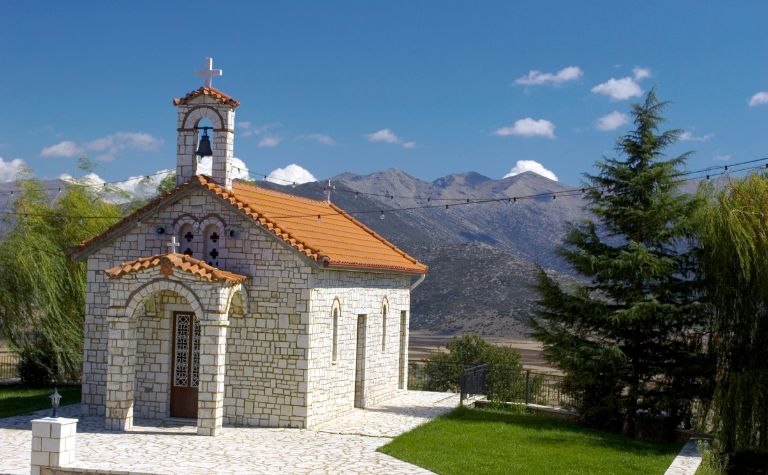Easter is the most important day on the Christian calendar because, as Paul told the Corinthians, if Jesus Christ didn’t rise from the dead, then his followers’ faith is worthless (1 Cor. 15:17). Because of its importance, Christians from the first century to the twenty-first century have celebrated the resurrection. However, different traditions and places celebrate Easter on different days.
Greece celebrates Easter according to the Julian calendar, which the Eastern Orthodox Church follows. Greece’s European neighbors, America, and other countries worldwide celebrate Jesus’ resurrection according to the Gregorian calendar, which Roman Catholic and Protestant churches follow.
When is Easter on the Julian and Gregorian calendars? Does Orthodox, Roman Catholic, and Protestant Easter ever fall on the same Sunday? How old are the Julian and Gregorian calendars? Does Orthodoxy’s date for Easter affect their beliefs about Jesus’ resurrection? Why does the date of Easter change? Keep reading to learn the answers to these questions and others.
Also, Christians have different ways of discussing Easter and observing the holy day. Learn more about why some prefer the term Resurrection Sunday.

When is Easter on the Julian and Gregorian Calendars?
Because the Julian Calendar, which the Greek Orthodox Church uses, is about two weeks behind the Gregorian, which Roman Catholic and Protestant churches use, Easter occurs later in Greece than it does in countries.
Not only does Easter occur on a different date in Greece, but so do other traditions related to the celebration of Jesus’ resurrection, like Lent and Good Friday. Yet, Orthodox Christianity doesn’t observe some of the traditions in the Easter season that other branches and denominations do, like Ash Wednesday.
| Julian Easter | Gregorian Easter |
|---|---|
| Sunday, April 26, 2023 | Sunday, April 9, 2023 |
| Sunday, May 5, 2024 | Sunday, March 31, 2024 |
| Sunday, April 20, 2025 | Sunday, April 20, 2025 |
| Sunday, April 12, 2026 | Sunday, April 5, 2026 |
| Sunday, May 2, 2027 | Sunday, March 28, 2027 |
| Sunday, April 16, 2028 | Sunday, April 16, 2028 |
| Sunday, April 8, 2029 | Sunday, April 1, 2029 |
| Sunday, April 28, 2030 | Sunday, April 21, 2030 |
Occasionally, the date of Orthodox Easter and Catholic and Protestant Easter coincide. The last time this occurred was in 2017. The next time it will happen, as seen in the table above, is 2028.
Does the date for Orthodox Easter reflect different theology? Orthodox Christians believe Jesus physically rose from the dead three days after his crucifixion, just as he said he would. His resurrection demonstrates his defeat of death, which is the consequence of sin (Rom. 6:23). Yet, the Orthodox Church has different ways of commemorating Easter in their services than Catholics and Protestants.
What do Orthodox Christians call Easter? Historically, Orthodox Christians refer to Easter as Pascha. “Pascha” comes from the Latin word “Pascha,” meaning “Feast of Passover,” which comes from the Hebrew word for “Passover,” Pesah. In the Old Testament, Passover is the first feast of the year and recalls when God passed over the firstborn of Israel and freed his people from Egyptian slavery (Exod. 12:1-32).
Also, Easter can occur in March or April. Discover why the date for Easter changes every year to learn the history and meaning of this variation.

Julian vs. Gregorian Calendar: Differences
Eastern Orthodox Churches use the Julian calendar to mark time, while Catholic and Protestant traditions use the Gregorian. The Gregorian calendar, named after Catholic Pope Gregory VIII, corrected the Julian calendar’s inaccuracies that had been evident for centuries. However, the Orthodox Church didn’t follow the Catholic Church’s calendar revisions because of their disagreements at the time.
| Julian Calendar | Gregorian Calendar |
|---|---|
| Named after Julius Caesar | Named after Pope Gregory VIII |
| Established in the first century before Christ | Established in the 16th century |
| 12-month year | 12-month year |
| 365 days in a typical year | 365 days in a typical year |
| Contained inaccuracies | Attempted to correct inaccuracies |
| 13 days behind the Gregorian | 13 days ahead of the Julian |
What was the nature of the Julian calendar’s inaccuracies? The Julian calendar inaccurately reflected the time the Earth took to travel around the sun. By the 16th century, its error resulted in a 10-day accuracy gap. In 1582, Pope Gregory sought to correct the misalignment. If civil and church leaders didn’t fix the error, it would have resulted in greater chaos in the observance of civil and church-related holidays.
Catholic countries like Italy, Spain, and Portugal made the change immediately. Because of the Protestant Reformation, which was underway, some European countries were hesitant to follow the Pope’s lead. Countries like England, Ireland, and Sweden made the change in the 18th century. A few Orthodox churches changed to the Gregorian calendar in the 19th century, but most stayed on the Julian.
According to the Oxford Dictionary of Christianity, “Protestant countries were reluctant to introduce [the Gregorian Calendar], and it was not adopted in England until 1752. In a few Roman Catholic Churches of Eastern rites, it had been accepted before the beginning of the 19th century, but not most of their individual members follow the Julian Calendar.” [1]
Greece adopted the Gregorian calendar for civil or non-religious purposes in 1923.
Also, Judaism and Christianity are historically connected. This fact makes many people wonder if Jewish people observe Easter Sunday. See the full article for details.

Why does the date of Easter change?
The date of Easter changes in the Orthodox, Catholic, and Protestant traditions because it’s historically tied to the Jewish observance of Passover. Passover was established in Judaism on a lunar calendar instead of a solar one, which doesn’t contain uniform dates from year to year. Passover occurs annually on the 15th day of the month of Nisan in Judaism, which falls in March or April on the Gregorian calendar.
When did the church decide on the date of Easter? Though all Christians celebrated the resurrection of Jesus in the first few centuries of the church, a difference arose about the proper day to do so. Some believed the church should celebrate Easter on the day of the Jewish Passover, no matter the day of the week it occurred. Others believed churches should celebrate it on the Sunday following Jewish Passover because that was the day of the week that Jesus rose.
What happened at Nicaea in 325 A.D.? Because disagreement over the date to observe Easter was prevalent in local churches, leaders at the Council of Nicaea discussed the issue. Nicaea, named after the council’s meeting place in modern-day Turkey, consisted of approximately 300 leaders of the church whose purpose was to discuss important matters of doctrine and practice.
The Council of Nicaea is mainly known for refuting the false teaching of Arianism, which made unbiblical claims about the person and work of Jesus. On that matter, Christians who disagreed about the date of Easter had unity. Yet the council’s conclusion affirmed the Sunday date of celebrating Jesus’ resurrection.
Also, the Easter season includes many customs, rituals, and celebrations worldwide. Discover why some observe Easter Monday and what the day’s significance is.
References:
[1] The Oxford Dictionary of the Christian Church. p. 593.
[2] The New International Dictionary of the Christian Church. p. 322.
Related Questions
Easter is one of the most important dates on the Christian calendar. It's important because it's the annual day that believers gather in churches to celebrate the resurrection of Jesus Christ from...
Christians love to celebrate the resurrection of Jesus Christ because his victory over sin and death is foundational to their faith (1 Cor. 15:17). Unlike other sacred days on the Christian calendar,...
